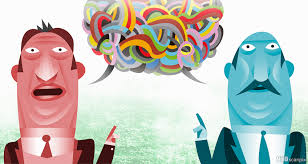BEATING THE DEALER AT BLACK JACK
Would you place 250˙000$ on a single bet?
The answer is most likely no, unless one of two conditions is met: the bet has an unreasonably high chance of turning out a win for you, or you have an unreasonable taste for taking wild risks. Indeed, Edward Thorpe had a way safer strategy in mind when, in the late ‘50s, he resolved to try and beat the Casino’s dealer at Black Jack, radically changing the history of the game in the process.
Thorpe, a Chicago born math professor, piled up a sound 10˙000$ (worth around a quarter of a million to-day) from friends and colleagues in order to test the validity of his theories at the Black Jack table. Needless to say, his success was such that he was kicked out of every Casino he played at, and such that we still talk about it to this day.
His strategy had to pillars: counting the cards and knowing exactly how much to bet on any given bet.

The former is nothing new. In Black Jack, “counting” the cards means knowing with some accuracy what is your statistical chance of winning any single bet.
This is possible because the rules state that, after the initial shuffling, a few games are played sequentially with the decks as they are, meaning the cards stay in their place (both the ones that have already being played and the ones that are still sitting in the decks).
At some point, the game meets a specific condition that will lead to shuffling the deck anew, therefore restarting with a different order of the cards.
EDWARD THORPE’S WINNING STRATEGY
Then again, counting the cards is simply the act of calculating the probability of each new card being good or bad for the player. The longer the game goes before reshuffling the cards, the more relevant the predictions will be.
Once the statistics are laid out, there’s one thing left to decide: how much should you bet on any given hand? Thorpe had the answer to exactly this question.
Thorpe employed what is known as the “Kelly Criterion”, named after researcher J. L. Kelly. This Criterion states that the amount you should bet each time is directly proportional to the expected return, which in turn is a product of the expected payout and the probability for the bet to turn out a win.
Simply put, you should invest more on bets that have a higher expected return.

What a surprise, you might say! What is important here is not the exact Criterion (if you read this far because you hoped you would get a betting strategy, my apologies), but indeed the rationale behind it. Following Thorp, you are not guaranteed to see any sharp, massive payout on any win, nor will you win a higher portion of all individual bets.
The charm to his masterplan is that you are guaranteed to stay in the game as long as materially possible. Why is that so game-changing?
If you bet the whole 250˙000$ (in today’s value) we started with, and won a 36 to 1 payout – like the one you get betting on a specific number at the roulette table –, you would get 9 million dollars. You would probably buy your dream house, set some aside as a pension fund, and never gamble again, if you are wise enough. Seems empting, indeed…
APPLICATIONS FOR LANGUAGE LEARNING
… But what would happen if, as it is much more likely, you lost the bet?
In that case you would be left with a flat 0 dollars for the next bet. This means not only that you lost everything, which might already be harsh enough. This means that you don’t have any money left to try and repair the situation, neither by betting again nor through any other (wiser?) strategy.
Now, let us get to how it all relates to Language Learning. I see at least three common points, which we are going to explore in some depth.
First, just as one can employ different strategies when it comes to betting, the same is true for language learning. You can take an immersive course in a country where the language is spoken, or undertake an otherwise “intensive” training. Or you can learn as little as one word per day, every day, for a year or more (who said a 5-year goal is not as sexy as a game of Black Jack?). Or again, and more realistically, you can take an approach that sits in-between those two extremes.

This is equivalent, you guessed it, to what we just said about splitting your bets.
If you are considering a few different options – courses, self learning material, teachers – make sure to be betting on a few different rounds of the game before making any all-in decision. Try and explore many actions, then either validate or discard: but try first.
I’m sure our previous example of betting our 250˙000$ all at once seemed trivial to you, if not outright foolish. Now you know it’s the same thing in your language learning journey.
THE LONG (NOT THE LUCKY) GAME
Next, do you remember what was the key factor that made Thorpe’s strategy so successful?
The strategy was designed in such a way that you were sure to keep play the game as long as possible. By calculating your odds – “counting the cards” – you had a good idea of your chances of winning any given bet, but that wasn’t any big novelty, indeed, that’s something that many players try to do.
(N.B. seen the general misconception about this practice, it’s worth pointing out that counting the cards is not prohibited by the law. What’s funny, though, is that it’s de facto made illegal by Casinos themselves, meaning that they can and will escort you out and ban you ad perpetuum. Sounds unfair, right? Well, it is, still I am sorry to say that, if you were going to the Casino hoping to win instead of just for fun, you were being unfair towards your own rationality to begin with…)
The determining factor in Thorpe’s strategy was that by using the Kelly Criterion he knew exactly what was the right amount to bet each time.

What’s more important, this “exact” amount was not calculated to yield the higher returns, but to generate a long term strategy that guaranteed the longest survival possible at the table.
Once again, the same goes for learning. One key aspect that all language learning options have in common is that you will learn a flat 0 new words or expressions after you drop out. Dropping out, in our case, is equivalent to having lost all the money at the Casino.
When selecting among a few options for your language deep dive, don’t be fooled by high returns and quick wins. Go for those that suit you best in the sense that you will be sure to stick to them for the longest time possible. That might not be the case for all kinds of learning, but with languages, consistency does beats intensity time and again.
BETTING, LEARNING AND THE RIGHT MINDSET
Finally, it is safe to say that if you want to learn a language you are expecting some kind of return, just like betting in the Casino or gambling in general. It is also safe to say that the stakes are lower, because you are not going to “lose” any money, actually, you are not going to lose anything at all.
But is that always a good thing?
As humans, the fear of “losing” (however we define it) is one of the most powerful drivers for action. For some of you it might be the case that learning that new language just means bonus points with a friend or a different way to spend your free time.
Most of the time, though, it can mean much more.

If you are learning a language for work or because you are hard pressed by circumstance, you have better sticking to your objective as long as you need to accomplish it. In this case, it is useful to treat the objective of learning a language just as any monetary achievement.
1. First, you should have very clear in mind how much you want to win, or in language terms, the level you want to reach. You can’t go after an objective that you can’t at least see.
2. Just as in betting, you have to sketch out a long term plan for your actions and follow it. Not only when it feels good: the right plan has to keep you covered while you follow it through thick and thin.
3. You will have to take many different actions, so better to know where to invest the big bucks and when to take smaller risks. Just like Thorpe’s strategy.
All in all, things as complex as learning a language follow an unpredictable course, but you can always bend your luck and be in charge of getting the final result.
I hope this metaphor for language learning through gambling could shed some lights on what I consider to be some of the most interesting aspects to it: planning, endurance, and a lot of fun along the way.

Leave a Reply